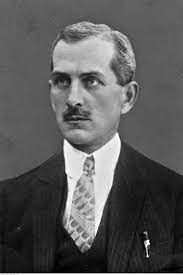Znaniecki, Florian

Bio: (1882-1958) Polish-American sociologist. Florian Znaniecki received his doctorate from the University of Krakow and after that, he became the director of the Society for the Welfare of Émigrés (Towarzystwo Opieki nad Wychodźcami), and editor of its journal, Wychodźca Polski (The Polish Émigré). Through that position, he met William Thomas, who was a professor of sociology at the University of Chicago and who did extensive research on Polish immigrants. The two of them started working together on that research, so Znaniecki went to America in 1914 to continue his research there. During his stay in the United States, Znaniecki taught at the University of Chicago, and after returning to Poland in 1920, he began teaching at the University of Poznan. In 1939, he went to America again, where he remained for the rest of his life, and taught at Columbia University and the University of Illinois.
The Polish Peasant in Europe and America
The results of the research, conducted by Znaniecki and Thomas, were published in the book The Polish Peasant in Europe and in America (1918-1920), which was published in five volumes. Znaniecki wrote a part of the book that referred to the methodology used in the research. The research began with the method of observation and conversation, and later institutional documents were used: 8000 documents from the archives of Polish newspapers, data from immigrant organizations, records of social agencies, police, and court reports, as well as documents from the Polish church community in Chicago. In addition to institutional documents, personal documents were also extensively used – Thomas and Znaniecki placed an advertisement in a newspaper asking individuals to send them their personal letters, and in response, they received 15,000 letters, of which they selected 754 for publication; as well as a complete autobiography of the average immigrant of peasant origin.
Theoretical Approach
Znaniecki also wrote about the theoretical approach used in the research. The author's approach was a synthesis of sociology and psychology, and social changes were at the center of the analysis. They believed that people's values and attitudes were an integral part of their "definition of the situation" in which they found themselves. The definition of the situation is created by the interaction of the objective environment and the subjective experience of people. The authors considered that individuals act towards the external environment in accordance with the meanings that that environment has for them. Definitions of the situation were individual, but the common cultural and religious heritage of Polish immigrants, on the one hand, and the shared experience of adapting to rapid social change and complicated integration in a new country, on the other, contributed to these definitions being very similar, hence, that definition of situation become common to the entire immigrant community. That is exactly how the mutual relationship between personality and culture came about. The focus was on psychological factors - the desire for recognition, and the need for security - as well as on institutions and organizations. Nomothetic social science is possible only if the entire social emergence is viewed as a product of the continuous interaction of individual consciousness and objective social reality.
Znaniecki further develops his theoretical approach in the book Cultural Reality (1919). In his opinion, sociology is a science whose subject are systems of social action. His theory of action is aimed at understanding social dynamics and change, mostly in the context of the culture and creativity of the actors. In his book An Introduction to Sociology (in Polish 1922), Znaniecki formulates the concept of the "humanistic coefficient" which means the experiential and value meaning of cultural information. Culture consists of values, which is the main fact that distinguishes it from nature. The systems of social action are directed towards the individual and collective cultural values of the actors themselves. The values related to society are the most complex and variable. His "culturalist" approach to sociology and his concept of the humanistic coefficient require that different societies be viewed in the context of their specific cultures and historical experiences. In the same book, he explores how systems of action build more complex dynamic systems, such as social roles, social relations, and social groups.
The relationship between the system of social action and the social "self" is studied in the book Laws of Social Psychology (1926). In the book The Method of Sociology (1934), Znaniecki returns to methodological topics and sets out the rules for qualitative research of social systems, advocating the application of analytical induction in the process of field data processing. In his book Social Actions (1936), he again explores social actions as dynamic value systems and makes a taxonomy of social action types. In his book Modern Nationalities (1952b), Znaniecki applies his theoretical approach to the analysis of nations. In the beginning, he distinguishes between a political society (state) and what he calls a "national culture society." He explores the cultural objectivity of the nation's existence, as well as the cultural causes of conflicts between them. He sees the emergence of modern nations as a product of the spread of secular culture and the organizations that developed and spread that culture.
Main works
The Polish Peasant in Europe and in America, 5 vols. (1918-1920);
Cultural Reality (1919);
Upadek cywilizacji zachodniej: Szkic z pogranicza philosopherii kultury i socjologii (1921);
Wstęp do socjologii (1922);
The Laws of Social Psychology (1926);
Socjologia wychowania, 2 tom (1928, 1930);
The Method of Sociology (1934);
Ludzie teraźniejsi a cywilizacja przyszłości (1934);
Social Actions (1936);
The Social Role of the Man of Knowledge (1940);
Cultural Sciences: Their Origin and Development (1952);
Modern Nationalities (1952);
Social Relations and Social Roles (1965).

